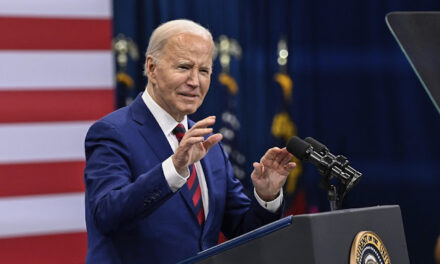LTP News Sharing:
In a commentary published at RealClearMarkets, National Center General Counsel Scott Shepard pulls back the curtain on the ESG agenda of what he calls “the Great Fiduciary Breach Machines,” and “most preposterously the perversion of it popping up at Harley-Davidson and the parent of Jack Daniel’s.”
In addition, in just one paragraph, Scott lays bare the lie that ESG is good for business:
Just about everything about ESG has always been a pernicious lie. The overarching proof: if strategies really are good for businesses, then businesses don’t have to be forced to adopt them. If ESG goals were honestly good for company bottom lines, there was never any need for the ESG movement at all. A couple of well-crafted studies – honest ones – would have done the job.
Read Scott’s entire commentary below.
The ESG (standing for “environmental, social and governance” – no noun included to maximize the duplicity!) movement is both appalling and appallingly powerful. Consider: it could, for a while, force anti-white race and anti-man sex discrimination on Harley-Davidson and Jack Daniel’s, of all companies. This insanity was powered by the Great Fiduciary Breach Machines of BlackRock, State Street and (perhaps to a smaller extent) Vanguard (“the Big 3”), which pretended that unconstitutional bigotry was a winning business move, not only for companies generally, but for those companies specifically, and then forced the companies to pretend along too.

Scott Shepard
All using other people’s money.
Just about everything about ESG has always been a pernicious lie. The overarching proof: if strategies really are good for businesses, then businesses don’t have to be forced to adopt them. If ESG goals were honestly good for company bottom lines, there was never any need for the ESG movement at all. A couple of well-crafted studies – honest ones – would have done the job.
A particularly evil ESG lie has been that reintroducing systemic race, sex and orientation discrimination at American firms would raise their profits.
Everyone knows that discrimination by surface or private characteristics is both morally wrong and bad for business. Racism and its consequences were generally recognized as the original American sin, one we collectively sought to master and to defeat – right up until we really had defeated it. And just then (by coincidence?), along came self-described “anti-racists” like Ibram X. Kendi who don’t understand what the word “anti-” means and who declared that the only cure for racism was… racism, just with the vectors reversed. The anti-man and anti-straight warriors quickly signed on.
Next came the Big 3, which shattered their fiduciary duties to use the power of customer assets and trash research to force companies to adopt the new bigotry because it was – underpants gnome-style — profitable. What motivated them is probably best left to their therapists – and to juries.
The result was the ESG lie in general; the disgrace of diversity, equity and inclusion (DEI) discrimination in particular; and most preposterously the perversion of it popping up at Harley-Davidson and the parent of Jack Daniel’s Distillery. That is, until the fine forensic work of Robby Starbuck, supported by an expanding array of organizations that have been willing to “speak truth to power” and all those things the radical left liked to do until it co-opted the rich and became (for now, anyway) the power.
Starbuck told each firm’s directors and execs facts they already knew. As Troy University’s Johnson Center for Political Economy (helmed by the incomparable Allen Mendenhall) recently established for the equally excellent 1792 Exchange, four-fifths of Americans think corporations have, in effect, gone woke, and two-thirds want CEOs get their companies back to business -honestly, neutrally and without partisanship.
Those are the baseline numbers. The customers of Harley-Davidson and Jack Daniel’s certainly oppose the corporate embrace of leftwing partisan politics more than the average American, particularly the unconstitutional, bigoted kind.
Likewise, the average American shareholder is more right-of-center than the average American generally, and almost certainly the ultimate shareholders of Harley and Jack — the people who put their own capital into investments — are to the right of that average. So we have a pretty good fix on what ultimate shareholders want and expect.
Note the emphasis on ultimate shareholders. The behavior forcers of ESG — the executives at BlackRock, State Street and Vanguard who are, collectively, merely custodians for about $20 trillion of ultimate shareholder money — have long pretended that they are instead the shareholders themselves (or that whatever they pretended, they are the stakeholders who matter), and so were entitled to force any company to do any damned thing they want.
In the end, though, Fink, O’Hanley & Co. are just custodians – custodians with massive, clear fiduciary duties. Every time they force any partisan position (even if it’s just stupid, not unconstitutional), every time they rely on invalid, goal-sought research from in-the-tank “consultancies” to support false claims about what makes a company more profitable, every time they “do ESG” in pretty much any way at all, they have violated those duties.
Harley and Jack and some others have started moving in the right direction, and that’s good news. Until the full bills for ESG breaches and liabilities are rendered, though, and payment of those bills enforced, all victories, however sweet, are only Concords and Trentons — with even Saratoga, let alone Yorktown, still lying glimmering at the edge of vision before liberty from the tyranny of “public/private partnership founded on great piles of lies” can be secured again.
Author: Scott Shepard







